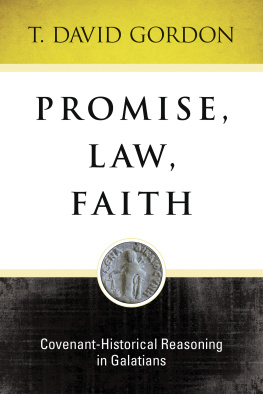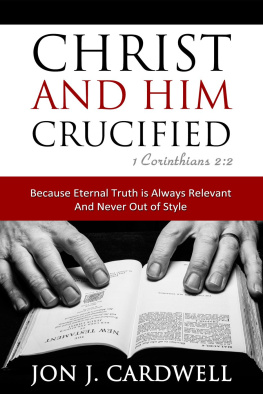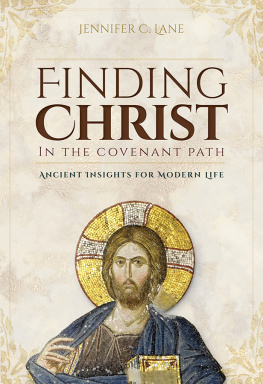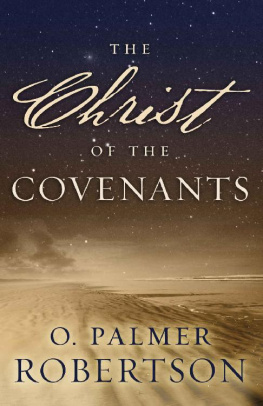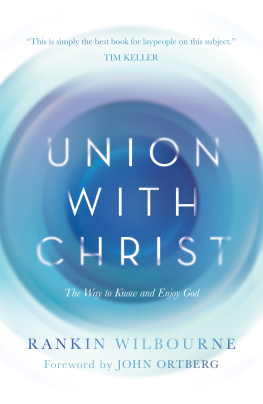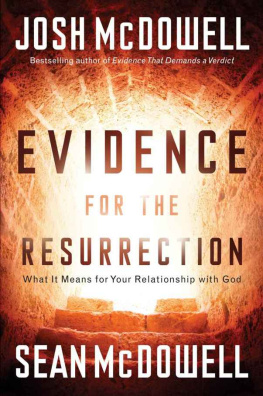Following Christ
The Parable of the Divers and More Good News
Stephen E. Robinson
1995 Stephen E. Robinson.
All rights reserved. No part of this book may be reproduced in any form or by any means without permission in writing from the publisher, Deseret Book Company (permissions@deseretbook.com), P.O. Box 30178, Salt Lake City Utah 84130. This work is not an official publication of The Church of Jesus Christ of Latter-day Saints. The views expressed herein are the responsibility of the author and do not necessarily represent the position of the Church or of Deseret Book. Deseret Book is a registered trademark of Deseret Book Company.

Buy volumes 1-4 of A Commentary on the Doctrine and Covenants at deseretbook.com
To the many humble followers of Christ in
the old La Caada Ward (195064) whocounseled,
led, and taught; who drove, coached, and cooked;
and who gave their time, their food, theirhomes,
and quite often their love; and especially to
Maude Barron and Cy Watson of blessed memory
Preface
Some time ago I wrote a book about firstprinciples of the gospel that some members of the Church have found helpful.That book, Believing Christ: The Parable of the Bicycle and Other Good News, describes what it means to have faith in the Lord JesusChrist and to be justified by faith in him through the gospel covenant, thefullness of which has been restored in these latter days. However, as manyreaders have pointed out, our lives do not end once we enter the covenant.Having been born again, we are then faced with the anticlimactic necessity of living again. Perhaps the greatest spiritual frustrationmany people encounter is that without exception we mortals are converted long before we can be perfected. That means all of us must limp along for aconsiderable period of time in which our commitment and desire are not matchedby our actual performance, and in which we must simply trust God to take careof uswarts and all. That condition is not limited to the spirituallyinept but is the common lot of everyone in the Church. So the next logicalquestion is, If God doesnt require me to be absolutely perfect immediatelyupon conversion, what does heexpect of me, and how am I supposed to come up with it? Now that Ive been bornagain, what do I do with the restof my lifeand how do I do it?
One of the scriptural terms most often used for what God expectsof the converted is endurance. Havingentered the covenant of grace at baptism, we are asked to endure in it untilthe end of our lives. Thus the phrase enduring to the end adequately describes our covenant obligation betweenour conversion and our death.
Where Believing Christdealt with entering the covenant,this book will focus on stayingin the covenant. The former book dealt with believing Christ and coming toChrist; the present volume deals with following and worshipping Christ. Ifbeing truly converted is to accept Christ as Lord and to make him the Lord ofour lives, then this must somehow be reflected in our livesbut how? How does being born againtranslate into behavior after ourconversion? After all, faith and works are not the polar opposites sometheologians would make them; rather, in the covenant they are yokefellows ortwo sides of the same coin. It is a little silly to talk endlessly about coming to Christ without ever mentioning where we are onceweve gotten there. The other side of the cointhe role of works in thegospel of Christis the subject of this book.
Acknowledgments
I would like to thank those who have madeit possible for me to write this book: My Sunday School class for drawing muchof it out of me. Fawn and Carol Morgan for giving me a place to hide out andwrite. George Karlsven for helping to keep me alive by marching me around theGrandview Hill for exercise. Debbie Parker, Sue Ostler, Larry Dahl, DennisLargey, and Karen Stoddard for reading the manuscript and offering suggestions.And Deseret Book Company for pursuing the project but with patience when I was distractedby other obligations. I have been blessed with good secretariesspecialthanks to Michelle Green and Connie Lankford. And, as always, I acknowledgeJanet, my inspiration, whose love blows gently on the dim coals of my abilitiesand coaxes them for a time to glow slightly brighter.
Chapter One
Getting to the Kingdom
What must I do to get into the kingdom of God? On this point thescriptures are surprisingly clear and explicit. For example, in the Gospel ofJohn, Jesus is recorded to have said, God so loved the world, that he gave hisonly begotten Son, that whosoever believeth in him should not perish, but have everlasting life(John 3:16, emphasis added). In Marks Gospel, as the resurrected Jesus senthis apostles out to preach to the world, he taught them that he that believeth and is baptized shall be saved (Mark 16:16, emphasis added). Consider the followingfrom the Book of Mormon: The Father commandeth all men, everywhere, to repent and believe in me. And whoso believethin me, and is baptized, the sameshall be saved; and they are they who shall inherit the kingdom of God (3Nephi 11:3233, emphasis added). The vital significance of these and manyother similar passages of scripture that could be cited on this subject oftenescapes us. It is this: The critical elements referred to in these scripturesconcerning being saved, or receiving everlasting life, or inheriting thekingdom of God are all elements associated not with the distant future or withhow we live the rest of our lives; rather, they are things we do to enter thecovenant of the gospel. They come at the beginning of ones life in Christ and membership in theChurch. In other words, to get right with God and become heirs of salvationis to come unto Christ and enter the covenant of his gospel. This is done byhaving faith in Christ, repenting of our sins, and being baptized by immersionfor the remission of sins. We then receive from God the wonderful gift of theHoly Ghost. The primary focus is therefore not upon the coming judgment day butrather upon our initial conversion to Christ.
With this perspective in mind, consider these words of Moses inthe Pearl of Great Price: The Lord God called upon men by the Holy Ghosteverywhere and commanded them that they should repent; and as many as believed in the Son, and repented of their sins, should be saved; and as many as believed not and repented not, should be damned; and the words went forth outof the mouth of God in a firm decree; wherefore they must be fulfilled (Moses5:1415; emphasis added). Believing, repenting, being baptized, receivingthe Holy Spiritclearly,these are the elements most directly associated in the scriptures with beingsaved, entering the kingdom, or receiving eternal life. And all of them come atthe beginning of our life inChristnot at the end.
Latter-day Saints have hesitated to use the term being saved, as many Protestants do, as an equivalent for beingconverted or coming to Christ, since we understand that as long as we live,this salvation is conditionalupon our enduring to the end. Since some Christians would dispute that there issuch a condition, it is worth reading the Saviors own words in Matthew 24:13:But he that shall endure unto the end, the same shall be saved (see alsoMatthew 10:22; Mark 13:13; 2 Nephi 31:15). Hence Latter-day Saints hesitate tospeak of salvation as a done deal in this life (not trusting themselves toremain faithful, I suppose). Latter-day Saints have generally reserved the term




